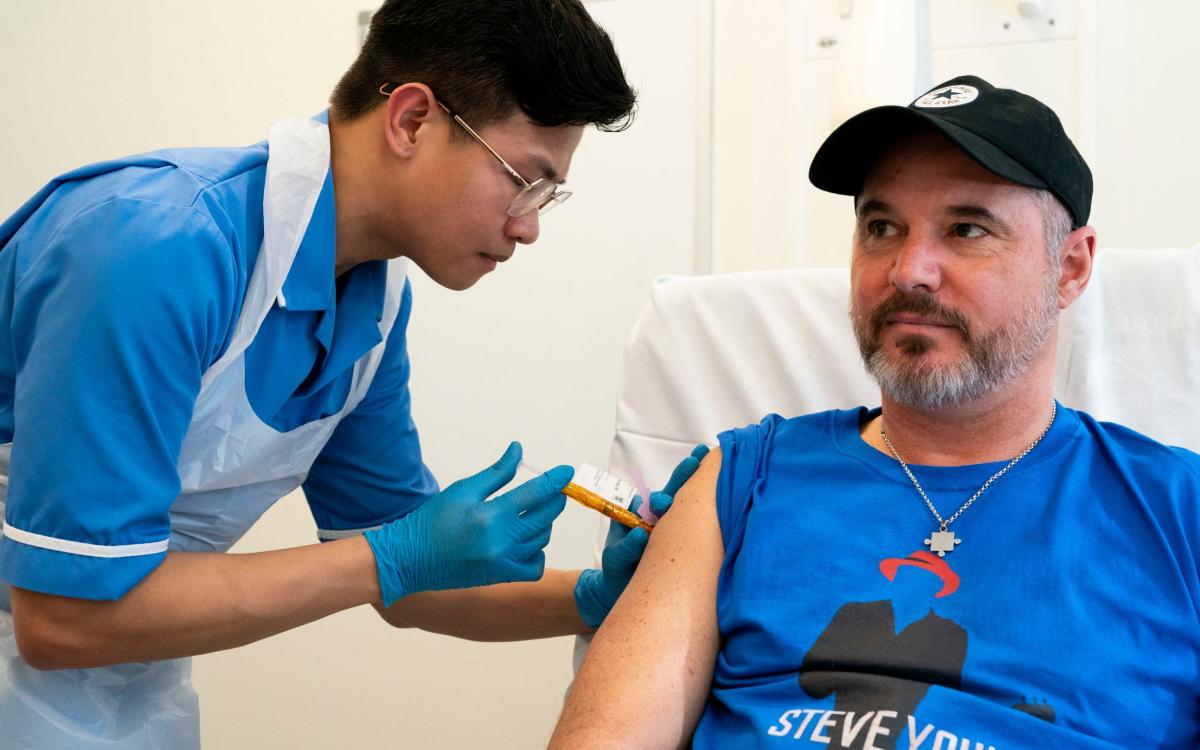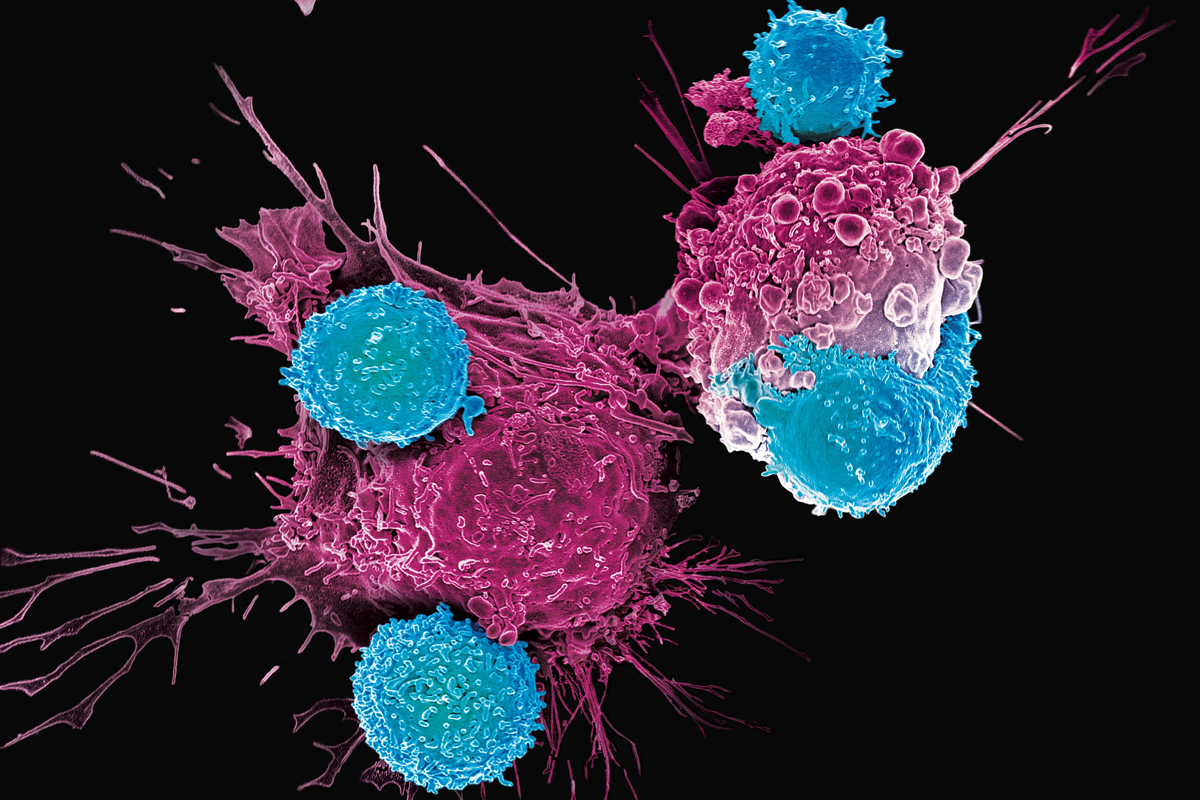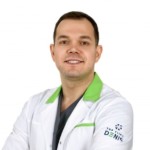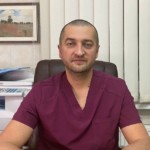-
 News
A real breakthrough in melanoma treatment: a personalized mRNA vaccine trial
News
A real breakthrough in melanoma treatment: a personalized mRNA vaccine trial
-
 Medical articles
CAR T therapy: helps treat cancer when other methods fail
Medical articles
CAR T therapy: helps treat cancer when other methods fail
-
 Medical articles
Cancer incidence is steadily increasing: disappointing WHO forecast for 2050
Medical articles
Cancer incidence is steadily increasing: disappointing WHO forecast for 2050
-
 Medical articles
Stem cells bring hope to millions of people suffering from hearing loss
Medical articles
Stem cells bring hope to millions of people suffering from hearing loss
-
 Medical articles
TOP 10 clinics for oncology treatment 2023
Medical articles
TOP 10 clinics for oncology treatment 2023
All news
Esophageal carcinoma treatment
- Causes a million deaths every year.
- The average age of affected men is 67 years, women – 71 years.
- Men get sick 4 times more often than women.
Modern diagnostic methods: PET-CT, esophagoscopy, endosonography, MRI, bronchoscopy, biopsy.
Innovative treatments: endoscopic resection, surgical resection with the da Vinci Surgical System, brachytherapy, radiochemotherapy.
MedTour patients recommend clinics for the treatment of esophageal carcinoma:
Doctors for the treatment of esophageal carcinoma
Patient reviews
My mom had a mastectomy at the Samsung medical center. We were very worried, but everything went well. MedTour helped us get to the clinic and hired a transfer. The clinic is of a high class, my mother was pleased with the treatment, the conditions of the ward and the service.
I had prostate cancer and I decided to have a surgerv in Medipol clinic. I have heard about it from my friends to did the same surgery here. I was amazed about modern technology in this hospital! Doctors and nurses are super polite and educated. Everyone speaks english and is ready to help in every situation. My turkish surgeon was the best doctor, which I have ever met in my life. Results of the surgery are estounishing. I feel myself great and I am very thankful to MedTour for organizing my medical trip!
Frequently Asked Questions
It’s mutation in the cells of the mucous membrane of the esophagus with the formation of a malignant tumor.
- first form arises from the squamous epithelial cells of the mucous membrane. This type occurs in 6 out of 10 people with esophageal carcinoma.
- second form grows from glandular cells of the mucous membrane. 4 out of 10 people have this type of gullet carcinoma.
Risk factors are:
- heartburn,
- smoking,
- increased alcohol consumption,
- overweight,
- swelling in the mouth / throat,
- burns of the gullet.
The disease is manifested by difficulty in swallowing. At first, difficulties arise only when swallowing solid food, but gradually also when swallowing liquid. Other symptoms:
- ache and complaints during swallowing,
- hoarseness of voice,
- belching,
- loss of appetite,
- blood in the stool,
- weight loss.
Life expectancy depends on the extent of cancer spread. In most cases, it is discovered too late. 15–20% of people live five years after diagnosis.
Yes, you can. More than 900,000 people around the world die each year from esophageal cancer. Of these, 60% of people within a year after the diagnosis.
After detecting suspicious symptoms, the doctor prescribes an endoscopy of the esophagus. Additional research:
- endosonography,
- PET-CT,
- MRI,
- bronchoscopy,
- biopsy.
- endoscopic resection,
- surgical removal,
- robotic operation with the Da Vinci system,
- radiation therapy,
- chemotherapy.
The cost depends on the country, clinic and surgeon who will perform the operation. Surgical removal in Turkey – from $9.000, in Germany – from $20.000.
Want to know the exact cost? Leave a request on the MedTour platform.
When choosing a clinic abroad, you need to pay attention to:
- the clinic has Joint Commission International accreditation,
- experience of doctors (oncologists, surgeons) and their specialization in the treatment of esophageal cancer,
- the number of successfully treated patients and their feedback,
- the presence of the necessary equipment and our own laboratory.
Current standards for the diagnosis and treatment of esophageal cancer
The main examination method for making a diagnosis is a barium x-ray of the gullet and an esophagoscopy. Other studies are aimed at clarifying the size of the cancer, its aggressiveness and spread to other organs.
Esophagoscopy
This procedure involves inserting a thin tubular device through the mouth into the esophagus. At the very front of the machine is a small camera with light. This device is called an “endoscope” and it transmits an image of the esophagus to a screen.
Biopsy
During the esophagoscopy, the doctor takes tissue samples using special forceps. Samples are taken from all suspicious locations and checked in the laboratory.
Ultrasound
During the ultrasound examination, the doctor uses the upper abdomen. The contact gel ensures good transmission of sound waves. These waves are used to create an image of the esophagus. How detailed the doctor describes the image and draws conclusions from it depends on his experience. On the MedTour platform, you will find experienced doctors specializing in esophageal cancer.
Endosonography
A device with a small ultrasound probe is pulled through the mouth to the stomach. Sound waves are used to create images of esophageal tissue inside the body. Noticing suspicious lymph nodes, the doctor uses a fine needle and obtains samples for examination in the laboratory.
With the help of this technology you will know:
- the size and position of the tumor,
- the depth of ingrowth into the wall of the gullet,
- condition of the surrounding lymph nodes.
Bronchoscopy
Patients with advanced cancer should have their airways examined. In bronchoscopy, images are taken using a flexible tube that is passed through the bronchi. On the front of the device is a small camera with a light source. The purpose of this examination is to detect neoplasms in the airways.
PET-CT
With positron emission tomography, the patient receives a weakly radioactive substance (dextrose). With its help, the doctor sees on CT the metabolism of body cells – high metabolic activity indicates cancer cells.
Esophageal cancer treatment
Depending on the stage, carry out:
- local removal of the neoplasm: “from the inside” (endoscopic);
- surgical removal of the morbid growth;
- radiochemotherapy;
- palliative procedures (brachytherapy).
Endoscopic resection
Early detected tumors are removed endoscopically. To do this, instruments are inserted into esophagus through an endoscope and tumor is excised. Endoscopic resection removes only neoplasm and swallowing function remains – organ-preserving method. 9 out of 10 people get rid of all symptoms after this operation. Complications occur in only one in a thousand patients.
Surgical resection
During the operation, the esophagus is removed partially or completely. This treatment is applicable to patients with non-advanced tumors. The operation is performed under general anesthesia. Many clinics abroad use the Da Vinci robotic system. The amount of surgery depends on the characteristics of the neoplasm:
- location,
- size,
- distribution.
In certain situations, concomitant chemotherapy or radiation therapy may be used. They reduce the chance of relapse and increase the chances of recovery.
Radiotherapy
With this therapy, radiation is directed at the tumor tissue. During this procedure, the nuclei of the cells are so damaged that the cancer cells can no longer divide and die. Using modern irradiation technologies, the effect on healthy cells is minimal.
Chemotherapy
Therapy with chemical elements consists of several cycles. One cycle consists of administering the drug every day or every few days. Some active ingredients are taken in pill form. The duration depends on the combination of active ingredients used.
Breaks between cycles are done for:
- restoration of the body,
- dose reduction,
- monitoring the response of the tumor to treatment,
- assessment of patient tolerance to drugs.
Published:
Updated:






Рудченко Олексадр Украіна. Велике спасибі за професіоналізм та чуйність до всього колективу відділення, особливо лікарю Марісу Межецкісу. Лікування відбувалося у січні 2023 року.